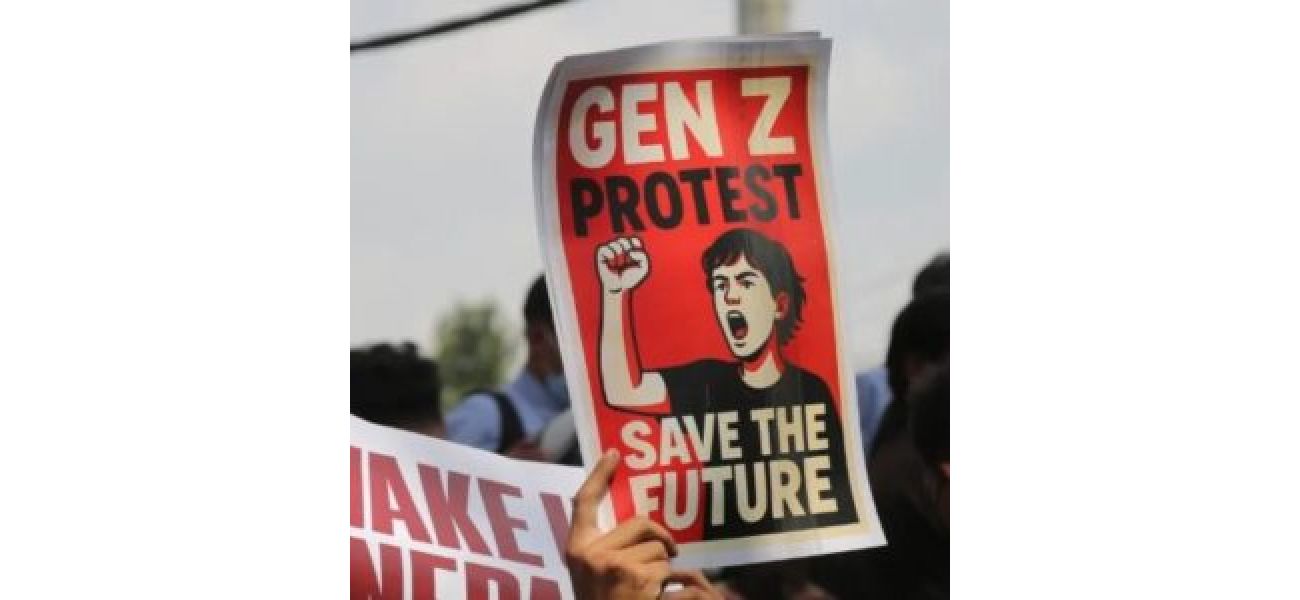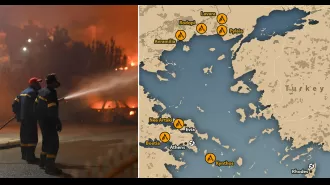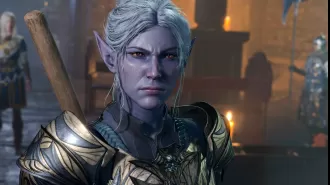Gen Z is here.
A new trend of non-ideological political movements centered on demands for basic needs and livelihoods is spreading globally from the Andes to the Himalayas, with countries like Nepal, Philippines, Indonesia, Bangladesh, Kenya, Peru, Morocco, and now Madagascar experiencing its effects.
October 22nd 2025.

There is a new wave of political movements sweeping across the world, fueled by the demands of everyday citizens and their basic needs and livelihoods. What makes these movements unique is that they are not driven by any particular ideology, but rather a shared frustration with corruption and nepotism within ruling regimes. From the Andes to the Himalayas, countries like Nepal, the Philippines, Indonesia, Bangladesh, Kenya, Peru, and Morocco have seen protests erupt, with the latest being Madagascar's Gen Z generation taking a stand against their President Andry Rajoelina.
It seems that the internet-savvy Gen Z, who are the first generation to grow up in the digital age, are leading the charge in the Global South. These young individuals are rejecting traditional politics and fighting against issues such as inequality, corruption, and neglect of the common man's basic needs. In Madagascar, the movement began on social media under the banner "Gen Z Madagascar," made up of mainly young people and students who are advocating for peaceful and civic-minded change. This is a significant shift, as in the past, political movements were often led by political parties, unions, or charismatic figures, whereas now, it is a collective outrage that is driving the protests.
What makes these movements stand out is their decentralized and spontaneous nature, with no single leader or political party at the forefront. This gives them a new symbolic power, as they are not seeking to seize power but rather demand a better future for themselves and their country. This has already resulted in the overthrow of two regimes in Nepal and Madagascar, showing the impact of this new form of social unrest.
Interestingly, it seems to be a pattern that both the Prime Minister of Nepal and the President of Madagascar have had to flee their countries in the face of the youth's fury. This is a testament to the power and influence of this generation, who are not afraid to hold those in power accountable for their actions. In Madagascar, the protesters have highlighted the stark contrast between the lavish lifestyle of the ruling family and the poverty that the majority of the population lives in, with two-thirds surviving on less than two dollars a day. Similar grievances can be seen in other countries, such as Morocco, where the youth are questioning the government's decision to spend large sums on renovating football stadiums rather than investing in public services like education and healthcare.
While these movements may not have a formalized political agenda, they have already shifted the political discourse. Instead of just trying to survive in a failing system, the focus is now on radical transformation. This is not just a passing revolt, but a fundamental shift driven by a new generation. They are not interested in outdated ideologies; instead, they are advocating for tangible and necessary changes in their society, such as access to food, shelter, education, and healthcare.
One of the greatest strengths of these movements is the absence of a leader, political organization, or a fixed agenda. This has made it difficult for established political parties to co-opt the movement and use it to their advantage. Gen Z's digital reach has also put politicians on notice, as their voices can now be heard on a global scale. It is no longer a question of "ism" but a demand for real change and accountability. Perform or perish has become the mantra for this brand of youth politics, and it is a force to be reckoned with.
It seems that the internet-savvy Gen Z, who are the first generation to grow up in the digital age, are leading the charge in the Global South. These young individuals are rejecting traditional politics and fighting against issues such as inequality, corruption, and neglect of the common man's basic needs. In Madagascar, the movement began on social media under the banner "Gen Z Madagascar," made up of mainly young people and students who are advocating for peaceful and civic-minded change. This is a significant shift, as in the past, political movements were often led by political parties, unions, or charismatic figures, whereas now, it is a collective outrage that is driving the protests.
What makes these movements stand out is their decentralized and spontaneous nature, with no single leader or political party at the forefront. This gives them a new symbolic power, as they are not seeking to seize power but rather demand a better future for themselves and their country. This has already resulted in the overthrow of two regimes in Nepal and Madagascar, showing the impact of this new form of social unrest.
Interestingly, it seems to be a pattern that both the Prime Minister of Nepal and the President of Madagascar have had to flee their countries in the face of the youth's fury. This is a testament to the power and influence of this generation, who are not afraid to hold those in power accountable for their actions. In Madagascar, the protesters have highlighted the stark contrast between the lavish lifestyle of the ruling family and the poverty that the majority of the population lives in, with two-thirds surviving on less than two dollars a day. Similar grievances can be seen in other countries, such as Morocco, where the youth are questioning the government's decision to spend large sums on renovating football stadiums rather than investing in public services like education and healthcare.
While these movements may not have a formalized political agenda, they have already shifted the political discourse. Instead of just trying to survive in a failing system, the focus is now on radical transformation. This is not just a passing revolt, but a fundamental shift driven by a new generation. They are not interested in outdated ideologies; instead, they are advocating for tangible and necessary changes in their society, such as access to food, shelter, education, and healthcare.
One of the greatest strengths of these movements is the absence of a leader, political organization, or a fixed agenda. This has made it difficult for established political parties to co-opt the movement and use it to their advantage. Gen Z's digital reach has also put politicians on notice, as their voices can now be heard on a global scale. It is no longer a question of "ism" but a demand for real change and accountability. Perform or perish has become the mantra for this brand of youth politics, and it is a force to be reckoned with.
[This article has been trending online recently and has been generated with AI. Your feed is customized.]
[Generative AI is experimental.]
0
0
Submit Comment





